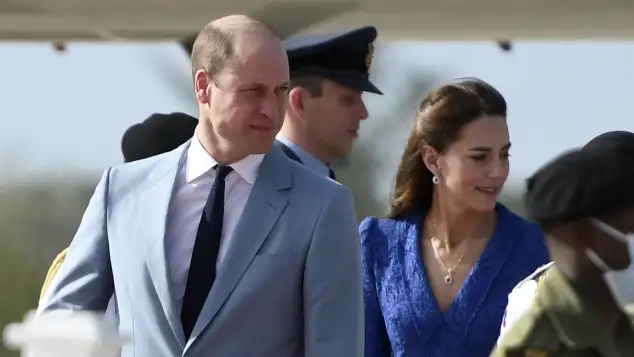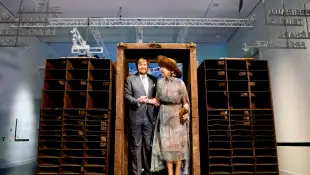- Prince William and Kate's royal tour has begun
- Their Caribbean tour was protested in Belize
- The royals did step out in Belize today
Prince William and Duchess Kate's Caribbean tour didn't get off to the best of starts. Before it even began, a headline-making protest forced them to cancel an outing planned for Sunday in Belize.
But the royal tour did get underway. William and Kate have arrived, and they appeared at ease as they met with the prime minister of Belize and his wife.
After protests: William and Kate begin Caribbean tour
After the inauspicious start, Prince William and Duchess Kate were met kindly by Belizean PM Johnny Briceño and First Lady Rossana Briceño. The group was in good spirits as they visited a government building in Belize City.
The Duke and Duchess of Cambridge are on a royal tour of the Caribbean countries Belize, Jamaica, and The Bahamas. It's a special visit in honour of Queen Elizabeth's 70th year on the throne.
Why William and Kate's visit was protested
This type of visit, however, can prove divisive given the history of British colonialism. For instance, Belize is a former British colony which gained independence only in the 1980s, but Queen Elizabeth is still its head of state today.
William and Kate planned to see a cacao farm in Belize on Sunday, but news of the visit was met with backlash from villagers. Residents of Indian Creek, Belize, said they were not consulted about the farm visit and mounted a protest. They also disagree with a nearby conservation project affiliated with Prince William.
Also interesting:
The government of Belize cancelled the farm visit due to the protest and shifted to a backup plan, reports NBC News. The Royal Family hasn't officially addressed the protests or cancellation.
On Instagram today, the royals told fans to expect from the tour: "The Duke and Duchess will meet a wide variety of people from each country, including children, young people and families, frontline workers, service personnel, leaders from government, business and the charity sector as well as inspiring conservationists, and the early years workforce."








